On Thursday 6th June, Right to Remain staff and These Walls Must Fall Campaigners travelled down to Bristol to facilitate a Solidarity Session event for local organisations and groups. We wanted to deliver a session in line with our new Theory of Change: building knowledge by sharing public legal education, building radical solidarity through connecting local groups, and building power by looking at future actions that could be taken.
We hadn’t been to Bristol since 2019, where we connected with their reporting solidarity group. It was great to hear that the group is still active, with one member attending the event. We were joined by over 40 organisations – including non-asylum / immigration groups, such as destitution organisations and trade union groups, which reinforced our goal of radical solidarity, as it meant a wider variety of groups entering the migration justice sphere.
What happened at the event?
We started the day with an introduction to Right to Remain and These Walls Must Fall, first sharing the Toolkit and the 5 key tips for using it. Some had not seen the resource before, so it was great to be able to introduce it and show its value. We then moved on to share a legal education update, which included the Rwanda Act developments and looking forward to the General Election. Finally, Maggy, our organiser for These Walls Must Fall, took us through what action the campaigners had been working on since the Rwanda announcement, including their solidarity presence outside reporting centres, and their Manchester ‘No to Rwanda!’ demonstration, which over 500 people attended.
It was in this space that we introduced our new campaign to ‘Free the Rwanda Detainees’, encouraging groups to share this message and the below graphic. Still now there are people held in immigration detention under Rwanda powers – and with no flights taking off before the General Election (or not at all), and we are calling for their immediate release. Their removal is clearly not ‘imminent’ making their detention unlawful.
After a short break, we moved into our legal education section of the day with two workshops back to back: stages of the asylum process and legal advice versus legal support. As usual, the legal advice / support activity spurred a heated debate!
After lunch, we shifted our focus towards building power, by focussing on existing Bristol based actions, and looking for future ones. To kick this off, we facilitated a panel discussion on reporting, detention, and protecting our communities from harm, featuring These Walls Must Fall campaigners Manono and Teresa, and Liz Lewis from Bristol-based campaign group Bristol Defend the Asylum Seekers (BDAS), and Bristol Reporting Solidarity.
The discussion used the recent Rwanda legislation as a starting point, with our These Walls Must Fall campaigners giving extremely brave accounts of their personal experience of reporting and detention, situating the hostile environment as a physical experience felt by our migrant communities. We heard from Liz on BDAS campaign against the worst parts of the Illegal Migration Act, and Bristol Reporting Solidarity’s presence outside Patchway Police Station, with a call out for more to join.
Our campaigners Teresa and Manono are quoted below:
As people who live through the cruel asylum system, we find it incredibly empowering when the community seeks to learn and offer solidarity. Their willingness to listen, understand, and stand with us validates our experiences and amplifies our voices in the fight for justice. This solidarity fosters community and shared purpose, making us feel seen, heard, and supported in our journey.
We closed the panel with a message of hope, thinking about a potential change of government with the pending General Election on 4 July, and asking ‘how can we hold them to account?’.
Future actions
Hearing from Liz and These Walls Must Fall campaigners spurred small group discussions to start thinking about future actions. We asked groups to consider four questions:
- What is happening on the ground in Bristol? What is Bristol focussed on and what action can be developed?
- What are our weaknesses and threats? How can we mitigate them?
- What are our strengths and opportunities? How can we amplify them?
- What are the gaps and what do you need to fill these gaps?
Groups identified increased immigration raids as a problem in Bristol, but that local groups, such as Bristol Anti-Raids Network, were organising against these raids successfully. The homelessness crisis in Bristol was recognised as a weakness, with a threat being that British nationals feel resentment towards asylum seekers who are housed ‘over’ them. Successes included the high number of refugee and asylum support organisations in the area, as well as the fact that there is a strong union presence, meaning a potential to raise consciousness and solidarity across the spectrum of social justice issues.
We ended the day by sharing Right to Remain’s key messages:
- Stay informed. The situation is changing, people will be disengaging from the system – how do they know? You are the people who have their trust – you need to stay informed too.
- We do this together. Coordinated response is necessary at a local level.
- Build a bigger tent. We need to mainstream migration and asylum as part of a broader social justice issue, something that the entire community owns. We cannot do it alone.
If you would like to request a workshop or Solidarity Session for your area, please email esther@righttoremain.org.uk.

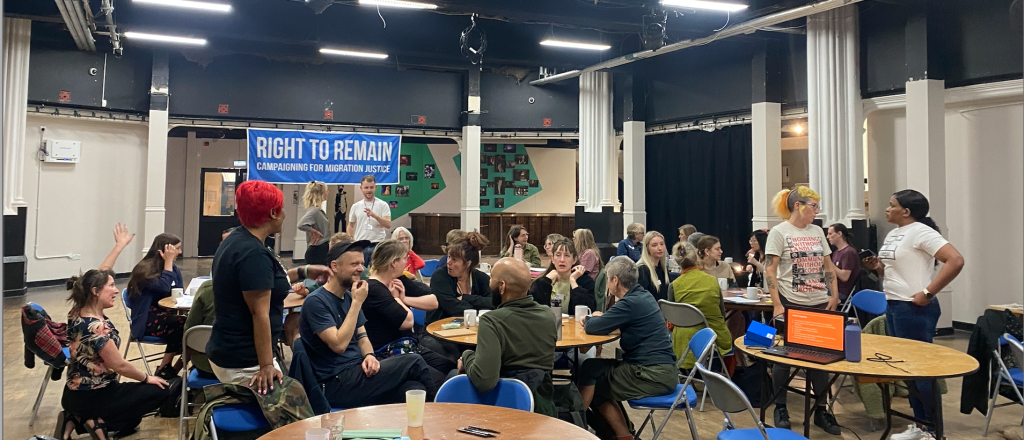
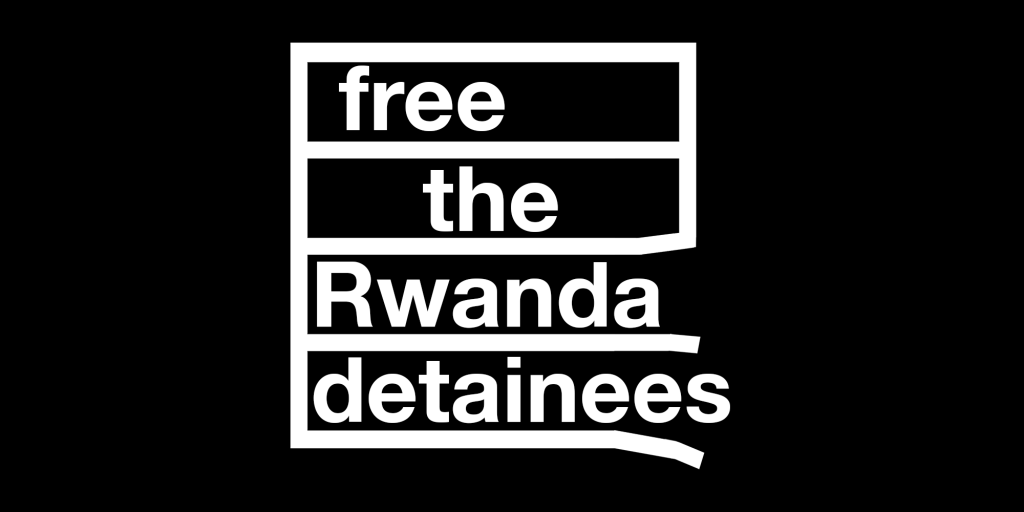
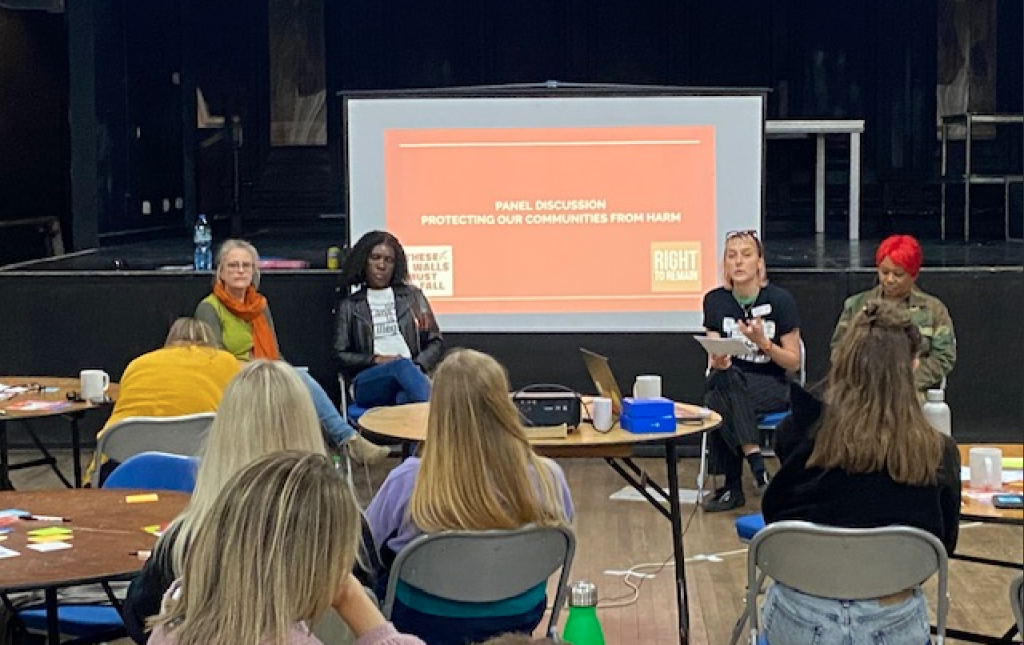
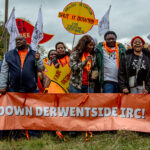

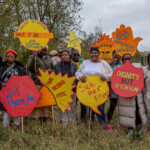
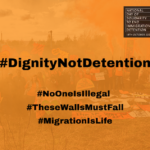
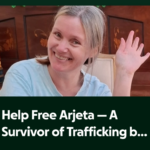

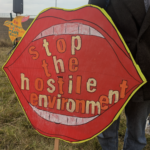



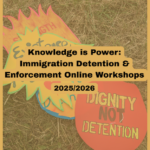
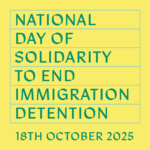
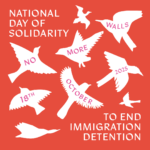
Discussion: